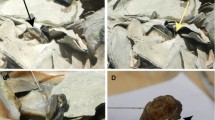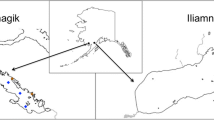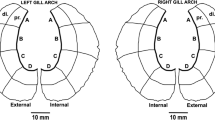Abstract.
The parasite manipulation hypothesis predicts that parasites should be selected to manipulate host behaviour to facilitate transmission to the next host. The bivalve Macoma balthica burrows less deep when parasitized by the trematode Parvatrema affinis. Shallow burrowing increases the likelihood of ingestion by birds, their final hosts, and therefore this has been interpreted as manipulation by the parasite. When unparasitized, M. balthica displays seasonal changes in burrowing depth, becoming less accessible to predators in winter. If shallow burrowing of parasitized individuals is due to direct manipulation by the parasite, the availability of parasitized individuals should be high throughout the year, or at least especially in the season when most birds are present and potential transmission rates are highest. We compared burrowing depths of parasitized and unparasitized individuals in a single population during seven consecutive years. Parasitized individuals showed reduced burrowing depths but, in contrast to the prediction, the effect of parasites on availability to predators was smallest, not largest, in the season with the highest bird numbers. The parasite P. affinis competes for energy with the host, and M. balthica with low energy stores are known to reduce depth of burrowing. When we included size-corrected somatic ash-free dry mass (as an estimate of the energy stores) in our statistical analysis, the effect of infection on burrowing depth disappeared. Thus the effect of infection on burrowing depth is likely to be an unavoidable, indirect effect of the channelling of energy towards the parasite, causing the starving individual to take greater risks in the acquisition of food. Since both the seasonal pattern and the magnitude of increased availability of parasitized individuals are inadequate, the increased exposure of parasitized M. balthica to the final host does not seem to represent an example of adaptive host manipulation by the parasite.
Similar content being viewed by others
Author information
Authors and Affiliations
Additional information
Electronic Publication
Rights and permissions
About this article
Cite this article
Edelaar, P., Drent, J. & de Goeij, P. A double test of the parasite manipulation hypothesis in a burrowing bivalve. Oecologia 134, 66–71 (2003). https://doi.org/10.1007/s00442-002-1038-x
Received:
Accepted:
Issue Date:
DOI: https://doi.org/10.1007/s00442-002-1038-x




